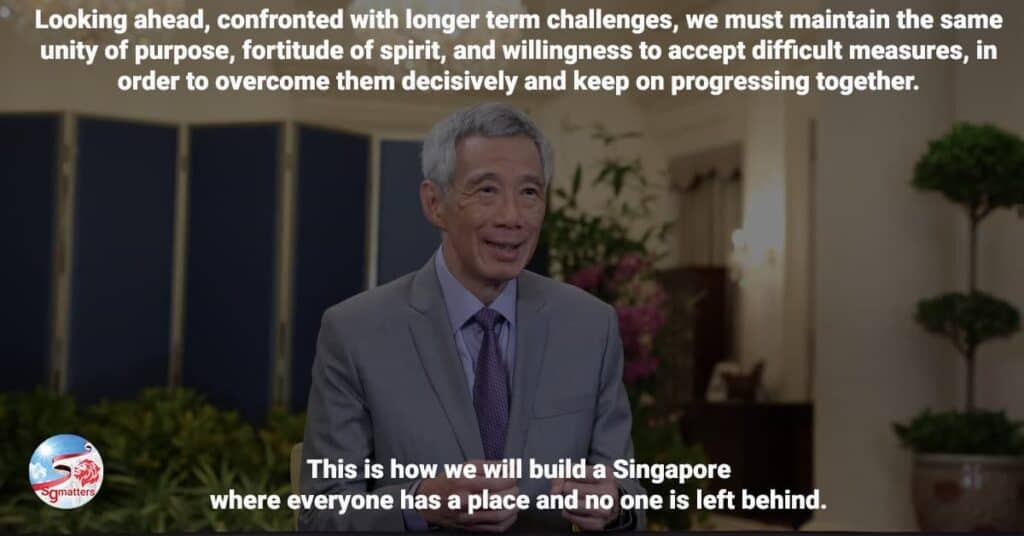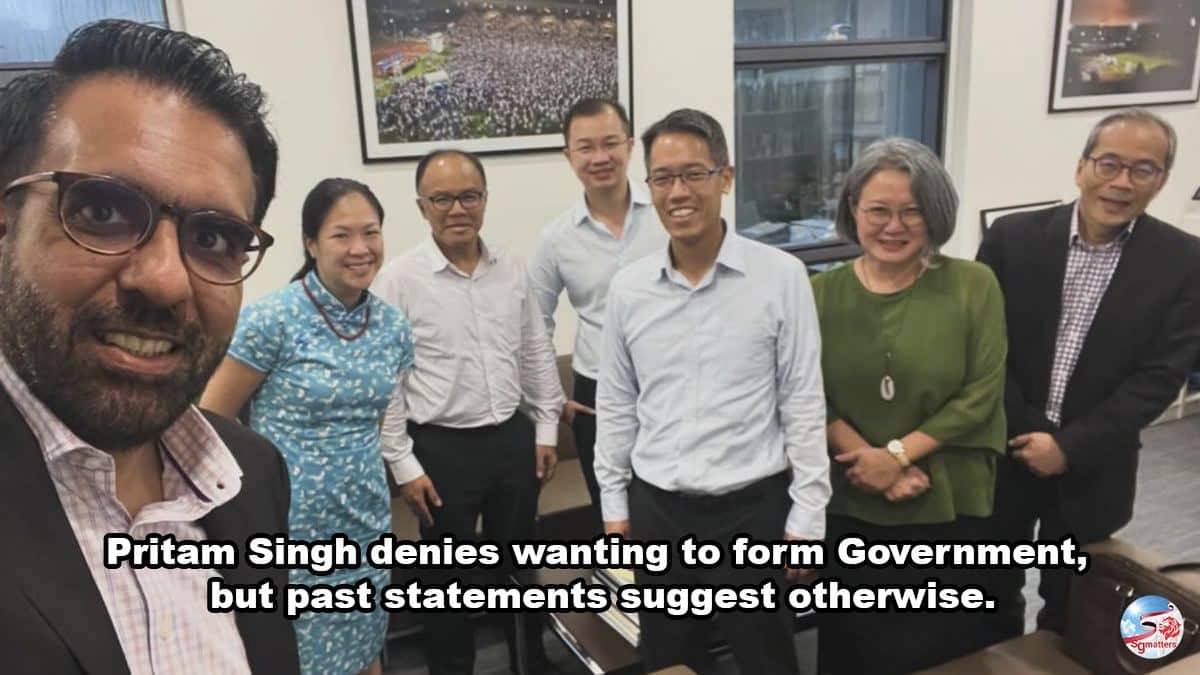2022 will be a time of transition, PM Lee said in his New Year message. Our economy is recovering steadily and barring fresh disruptions, it should grow in step with the global economy.
The past 2 years had been a long and hard fight grappling with COVID-19. The government took drastic measures to protect lives and livelihoods. “We closed our borders for the first time in our history,” PM Lee said. “We drew heavily on our past reserves to support workers and businesses. We innovated and adapted quickly to new ways of living, working and learning.”
Going forward, the government will strive to solidify our social compact to build a fairer, more inclusive and more united Singapore. This includes mending rifts deepened by the pandemic, uplifting those falling behind, enhancing safety nets for those in need, caring for the mental health of people, and meeting the needs of an aging society, PM Lee said.
Rationale for GST hike
To do this, the government must have reliable and adequate revenues to carry out its social programmes. It needs to raise additional revenues to fund the expansion of our healthcare system and support schemes for older Singaporeans.
“Those who are better off should contribute a larger share, but everyone needs to shoulder at least a small part of the burden,” PM Lee said. This is the rationale for raising a broad-based tax like the GST.
The impending GST hike, which will see GST rise from 7% to 9%, was first announced in Budget 2018. It was set to take effect sometime between 2021 and 2025.
Time to move on the planned GST hike
Now that our economy is emerging from COVID-19, the government will have to start moving on this, PM Lee said. Budget 2022 will lay lay the basis for sound and sustainable government finances for the next stage of Singapore’s development.
To help the lower income households, there will be a comprehensive scheme of offsets to cushion the impact of the GST hike. Finance Minister Lawrence Wong will provide more details on this.
A historical look at revenue from net GST collected
“The GST forms one important component of our system of taxes and transfers that also includes income and wealth taxes. Overall, our system will remain progressive and fair,” PM Lee said.
In pre-COVID time, statistics show that more than 60% of the net GST collected were borne by (1) foreigners residing in Singapore, (2) tourists and (3) the top 20% of resident households.

The bottom 40% of resident households in Singapore accounted for less than 10% of the net GST collected. These households also do not pay any income tax. In addition, they also receive GST rebates via the GST vouchers – both cash and U-save – which amounted to several hundred dollars in a fiscal year.
The GST is a good tool to raise revenue to fund spending for Singaporeans by taxing the vast number of tourists and foreigners who spend in Singapore.
A progressive tax system
Taking into account the GST rebates, and income and wealth transfers, our tax system on the whole, is a progressive one. Not only is our income tax among the lowest in the world, almost 50% of working Singaporeans do not pay income tax.
Our GST, even after it is raised by 2%, will still be among the lowest in the world. Many countries with double-digit GST or VAT, also have very high income tax.
The GST must be seen holistically with the benefits given to the lower income group. Besides GST rebates, the lower income group also receive Workfare Income Supplement of up to $4,000 a year, housing grants of up to $80,000, among other things.
Our prudent fiscal policies, together with our collective willingness to play our part, have stood us in good stead, allowing us to weather crisis after crisis and to emerge stronger each time. Supporting the impending GST hike will ensure that our expenditure is sustainable as the revenue collected from GST will go to fund increasing healthcare needs and support those who need a helping hand so that they are not left behind. These are recurrent expenditure that must be paid for on a daily basis.
Tt is not tenable for the Government to run persistent budget deficits outside periods of crisis. The Government operates on the principle that recurrent expenditure should be funded by recurrent revenue. This ensures that spending is responsible – fair for current and future generations.
As the country’s needs grow, resources to fund these must be planned for, and spending targeted in a fair and equitable way.
“Throughout this pandemic, we have stood together, supported difficult decisions, made many sacrifices, and come through safely. We can confidently say that we have measured up as one people. In a crisis, everyone saw the need to make tough choices, and accepted hard policies for the common good. Looking ahead, confronted with longer term challenges, we must maintain the same unity of purpose, fortitude of spirit, and willingness to accept difficult measures, in order to overcome them decisively and keep on progressing together. This is how we will build a Singapore where everyone has a place and no one is left behind.”

[irp posts=”7791″ name=”WP irresponsible to mislead on our fiscal position to pursue a populist position on GST”]
[irp posts=”11316″ name=”Indranee to Jamus: What matters is having wealth tax policies that work in each jurisdiction”]





